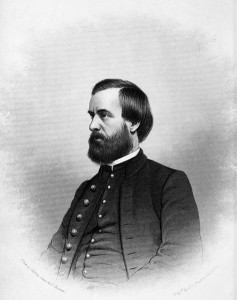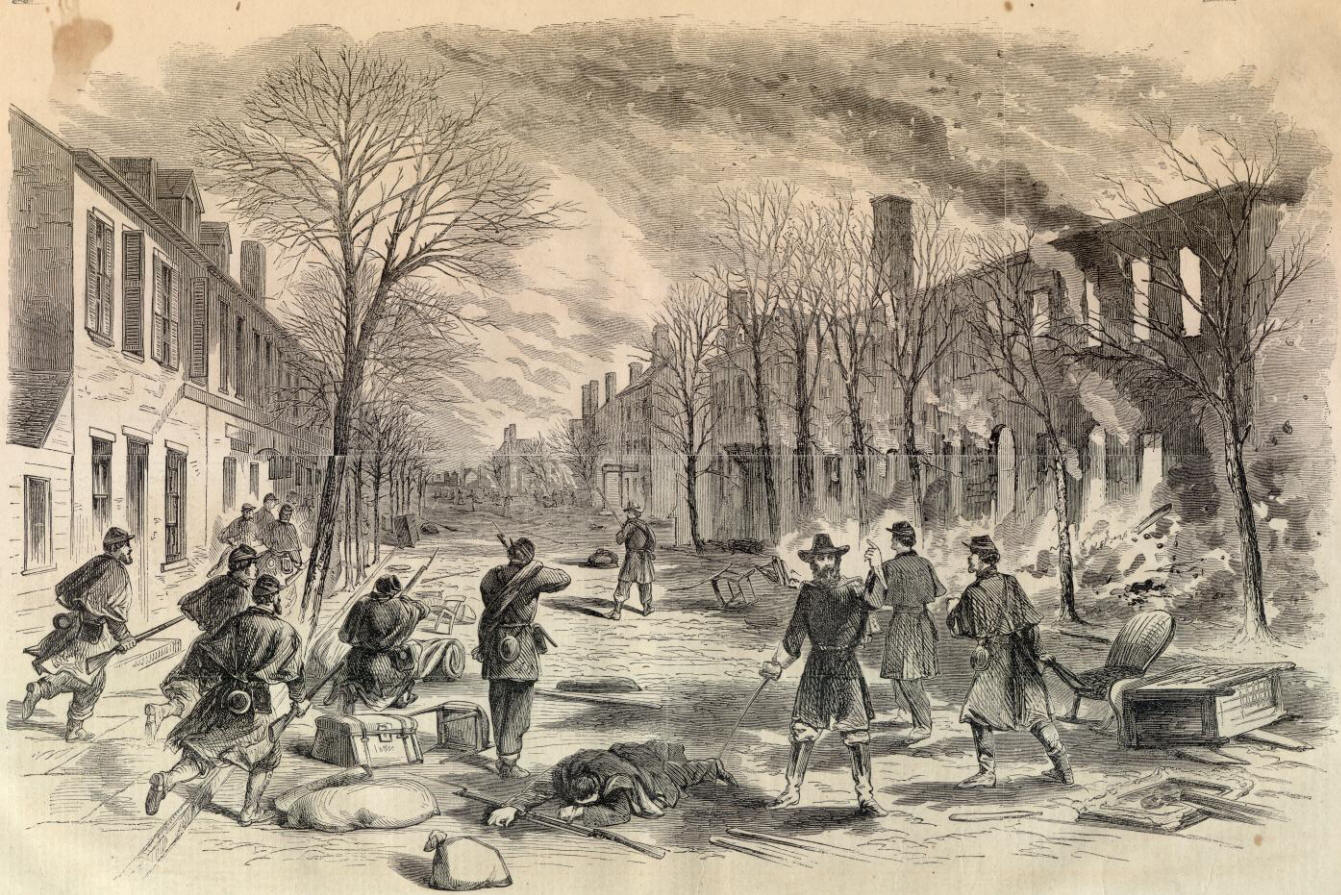News of a Christmas eve burial via Richmond.
From the Richmond Daily Dispatch January 2, 1863:
Death of a fighting Chaplain.
Rev. Arthur B. Fuller, Chaplain of a Massachusetts regiment, who was killed at Fredericksburg, was buried at Boston on Christmas eve. The Boston Journal says:
There has been a singular fatality attached to the family of the lamented Chaplain Fuller. Three of the family have perished by untimely deaths. Eugene Fuller, one of the sons, was drowned on the voyage from New York to New Orleans in 1859, the same year that the mother died. Margaret Fuller, Countess of Cossoll, perished by shipwreck, on Fire Island, near New York, in 1850. She was returning, from Italy to her native land, from which she had long been absent. Her husband and child were lost with her. And now Arthur B. Fuller has been killed in battle. In every instance the surviving members of the family received the sad tidings by telegraph.
A proponent of temperance and abolition Arthur Buckminster Fuller was a Unitarian clergyman who served as Chaplain of the 16th Massachusetts during the Civil War:
He was honorably discharged on 10 December 1862, on account of failing health. On the day following his discharge, being present at the Battle of Fredericksburg, he volunteered to join a detachment in crossing the Rappahannock River, and fell while attempting to drive the Confederate sharpshooters out of the city.
You can read a fuller account of Reverend Fuller’s life at the site of the Unitarian Universalist Association, which includes this description of Reverend Fuller’s death on December 11, 1862 :
…On December 10, Fuller was honorably discharged.
The following morning Fuller still lingered with his regiment, which was preparing to assault the city of Fredericksburg. Army engineers constructing pontoon bridges to cross the Rappahannock River came under heavy fire from Confederate sharpshooters. A call went out for volunteers to man boats for an assault on the enemy.
Fuller did not hesitate. Although no longer officially part of the Army, the frail, forty-one-year-old civilian climbed aboard a boat for the hazardous crossing of the river. Reaching the shore, he found himself with the Nineteenth Massachusetts Regiment, which was preparing to advance on the city. Captain Moncena Dunn of the Nineteenth later reported what happened to Fuller that day. “I saw him for the first time in the streets of Fredericksburg,” Dunn recounted. Fuller asked permission to join his unit. The captain replied that “there never was a better time than the present.” He ordered the chaplain to fill a place on the left of the skirmish line. “I have seldom seen a person on the field so calm and mild in his demeanor, evidently not acting from impulse of martial rage,” Dunn recalled. “His position was directly in front of a grocery store. He fell in five minutes after he took it, having fired [his rifle] once or twice.” Fuller had been killed instantly. …
The above image is from the January 3, 1863 issue of Harper’s Weekly and is hosted at Son of the South.


